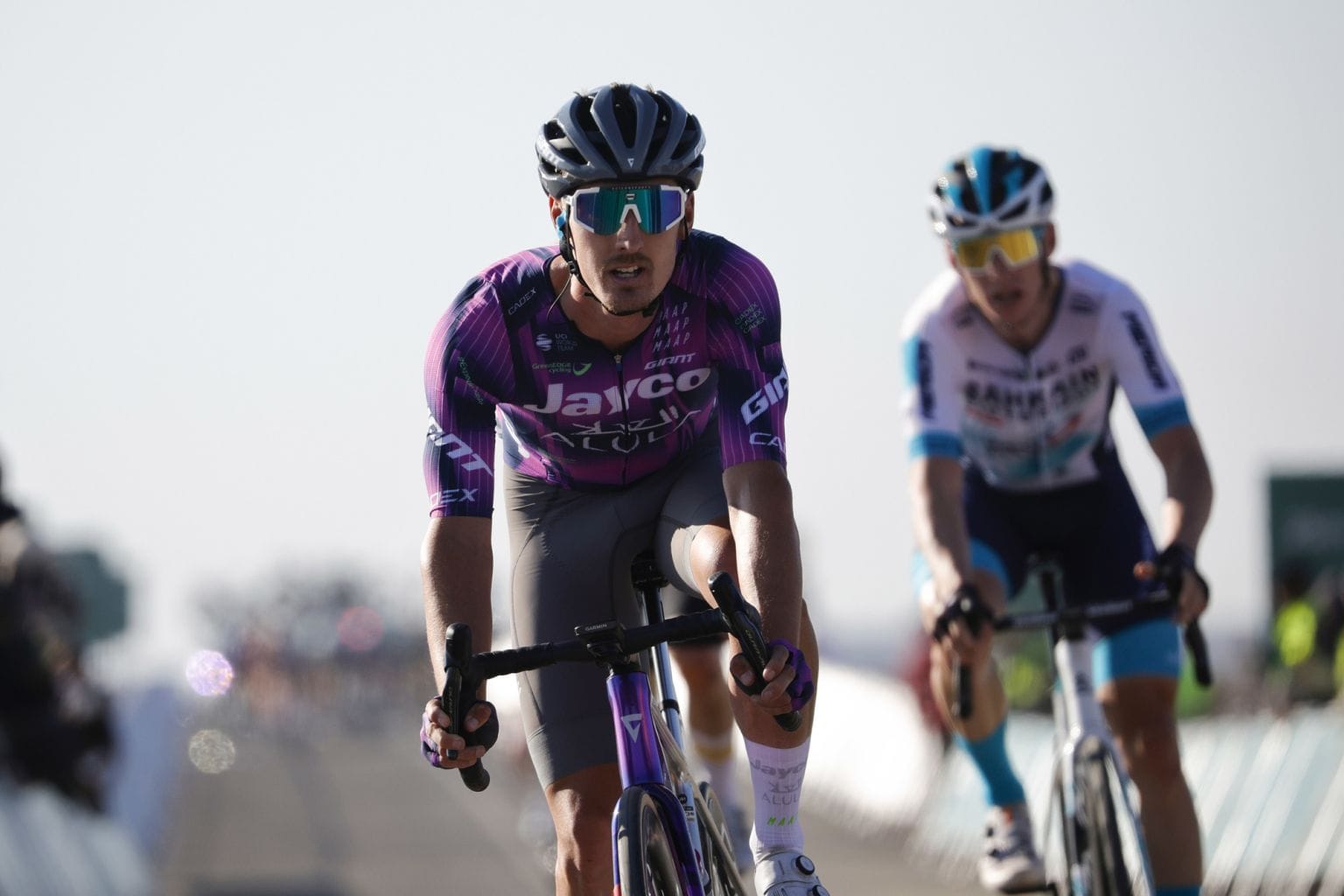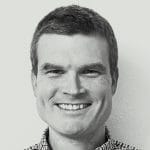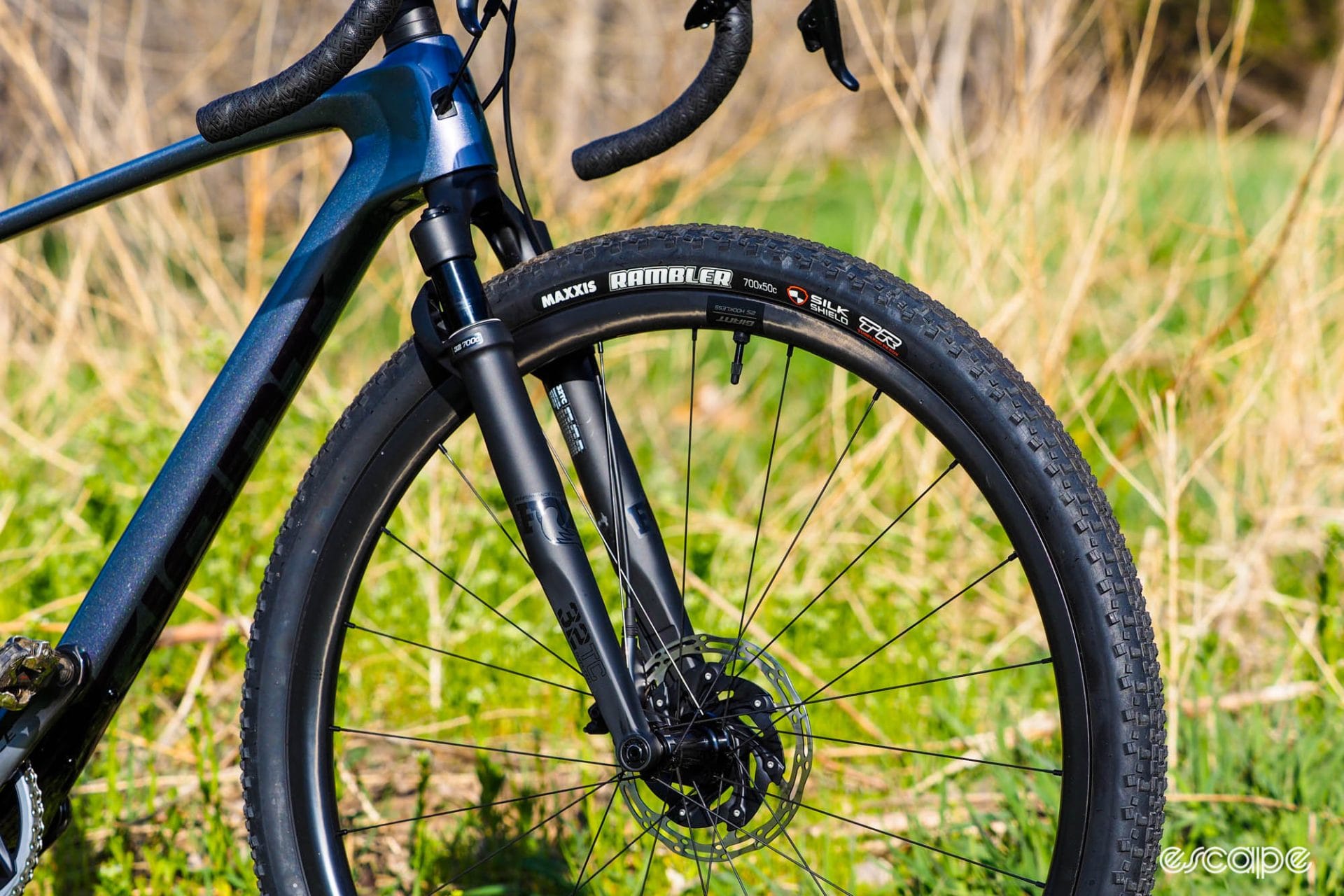In the latest entry in our Ten Questions series, Escape Collective caught up with Alan Hatherly, the reigning mountain bike world champion and now a WorldTour pro on the road with Jayco AlUla too.
The 28-year-old South African tells us about his decision to prioritize road racing, the feeling of dropping rivals, what he gets up to during the off-season in Stellenbosch, and more ...
Dane Cash: You have often done a bit of road racing on the side but you've made a much bigger commitment to it this year. As the current world champ on the mountain bike, the decision to shift your focus must have been a big one. Had you been waiting for the opportunity to come along for a while or was it something you decided on more recently?
Alan Hatherly: I've been trying for the last two years to move to the road, but it was super difficult to actually get the opportunity. The Olympic and world champs performances, obviously I showed that I have the engine. When we reached out to GreenEdge, they were excited straight away about the opportunity, and said, "Let's go for it."
We reached out to a few teams, and the majority were saying the same old, that I'm too old and too risky. But GreenEdge, I think they used Nino Schurter previously, in the past, for some races. I think Schurter rode the Tour de Suisse as a guest rider. So I think they knew how mountain bikers could perform on the road and it didn't take much convincing ... At this moment, I'm just really focusing on that transition. I want to do them proud, to justify that risk in a way from their side.
DC: It didn't take you long to show what you can do on the road with Jayco. You were second on a mountain stage at the AlUla Tour and took sixth overall there, and then you won the South African TT title. Were you surprised to be in that kind of form so quickly?
AH: Not really. The team told me about AlUla Tour straight after I signed, that that was going to be my first race with the team. Typically I would take four to five weeks of off-season, right at the end of the year, but last season, I took two weeks off. Shorter off-season, so I can get back to training a bit sooner and be in good shape for the AlUla Tour. They gave me the breakdown of the climb and the type of effort needed and I think it's not far off of a mountain bike-type effort. So we really targeted it. The risk was just learning the bunch and being able to position, which I don't think I did perfectly. To be honest, I think both stage 2 and stage 4, I was poorly positioned at the bottom of both of those climbs. So I really had to work for it to get my result.
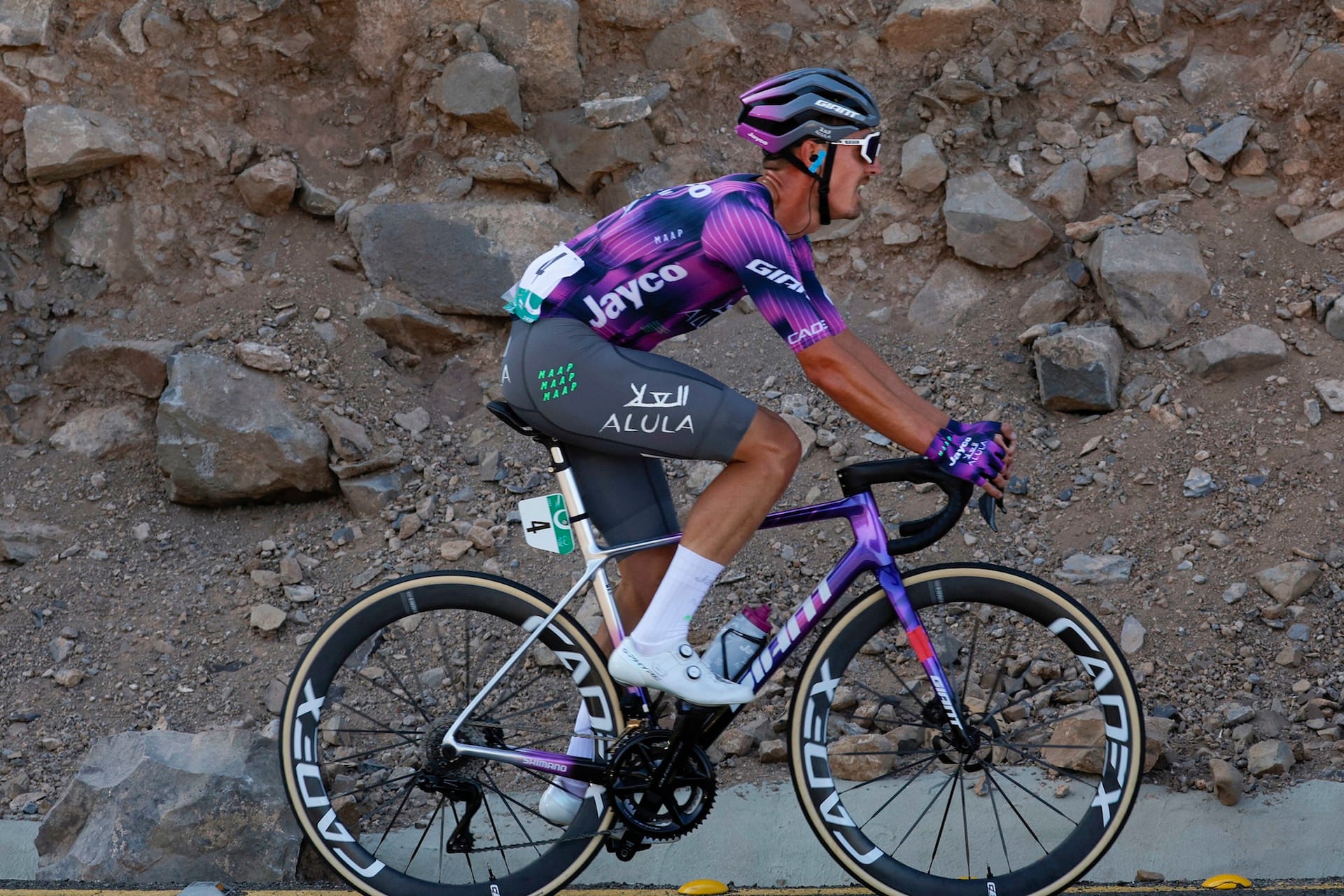
DC: What has been the most memorable moment from the most memorable day of your career so far?
AH: Winning the World Championships last year in Andorra ... I think it was when I when I rode away on that steep climb, when I got that small gap, and then kind of drove the gap even bigger on the next little kicker, and then realizing that this could be it. That moment, when you're riding away and showing you are the strongest rider on the day, I think that feeling is something that every rider strives for. That's the dream feeling, to be able to ride away confidently in a race.
DC: Have you talked to any of the other multi-discipline riders – Pidcock or Van der Poel, for instance – about juggling road and mountain bike?
AH: They keep their cards close to their chest, I would say, so I just have to kind of watch from the outside and see where they're going, what races they're doing, how they're coping to get insight. But I also think that my mountain bike calendar is going to be a lot more than theirs. It's six World Cups plus the World Championships, whereas I spoke to Tom at AlUla and it sounded like maybe he's doing one World Cup, Europeans, and the World Champs. So his calendar is very minimal on the mountain bike. I don't know what Van der Poel is doing, his calendar is unreleased, but I know that they focus on the road mainly, and then they drop back to mountain bike for "fun" in a way – in inverted commas.
DC: Speaking of Van der Poel and Pidcock, and thinking also of you and Victor Koretzky and a few others, it seems like there are several different riders who could win at any given mountain bike event right now. Does it feel like things are pretty open when it comes to competition at the moment?
AH: Yeah, I would agree with that. The sport has really leveled up in the last few seasons. My first and second years of elite, it was very dominant by Nino. It was one guy that really was always on the top step, and then the rest of the places from two to five were always a bit of a mix and match. But the last two seasons, it's kind of been anyone out of five riders that can win, and I think that's been really good for the sport. I think the viewership, from what I've heard, has gone up again, because obviously people are following it. It's not as predictable as it has been in the past. With the addition of the short track, that also opens it up even more. In the short track there's maybe 10 or 15 riders out of the 40 that can win.
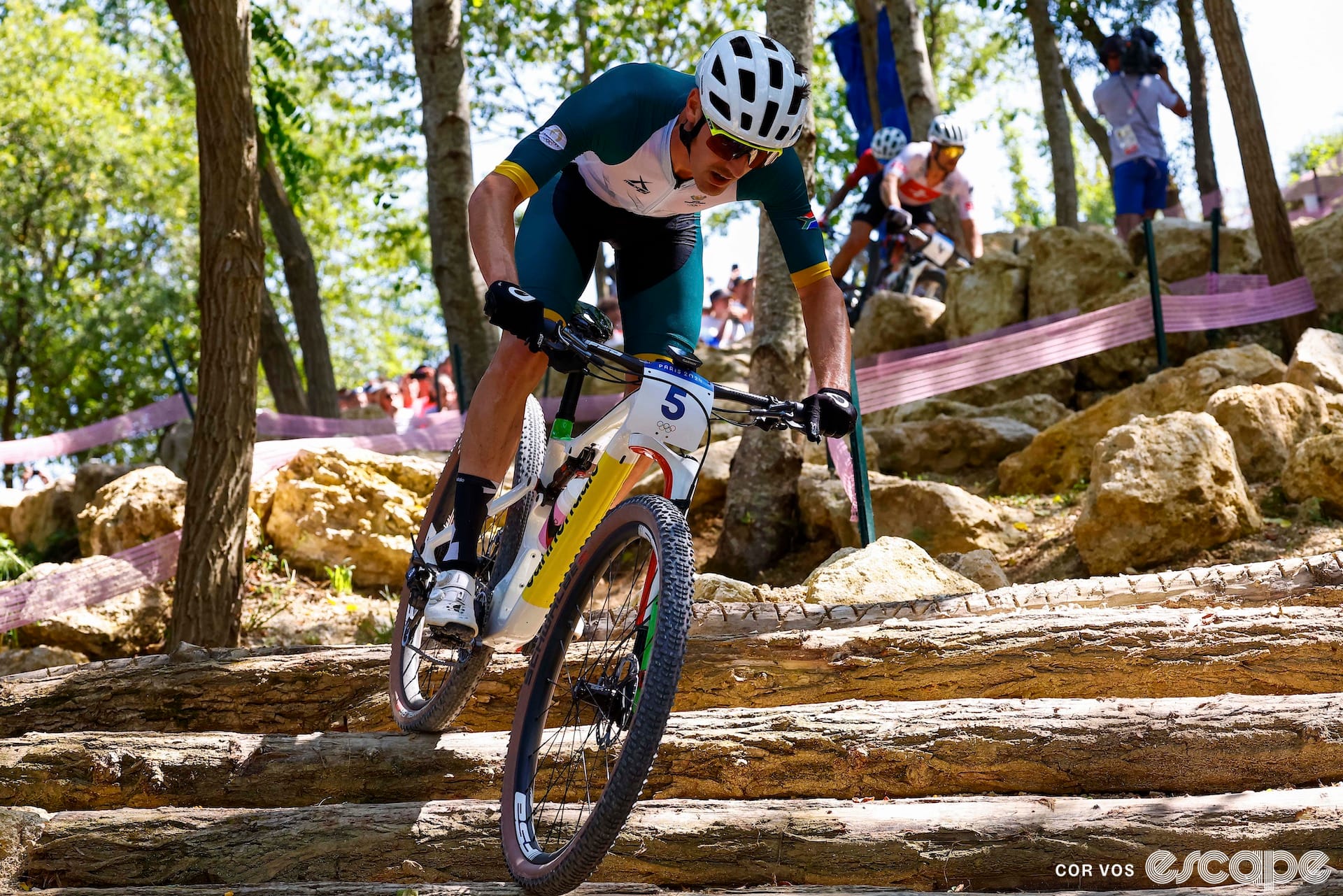
DC: If I asked your friends to describe you without mentioning cycling, what do you think they would say?
AH: Probably that I'm a quiet guy.
DC: If you weren't working in sport, what do you think you would be doing for a living?
AH: Being an athlete, I think you're just used to negotiations and the hustle. Since a young age, you try find teams and obviously meet and greet a lot of high net-worth individuals that obviously sponsor these teams and whatnot. I think that's inspired me already from a young age to venture down into being a business owner myself. So I think I would more end up creating a business rather than having a talent and working for someone. And when you're done racing, it's still a young age, so to keep the income and keep myself mentally engaged I think it's going to be really necessary. It's still open what it could be, [for example] a suspension shop or a bike shop. There's many business opportunities that come along the way, actually, surprisingly, being an athlete. So I think it's just jumping on at the right time.
DC: Where is your favorite place for a ride?
AH: Andorra. I really enjoy it, just being in the mountains, and for me, road safety is a big thing and I think Andorra is unbelievably safe with the cars there. The mountain passes, most of the time, go to a dead end, so there's very little traffic up and down. It's just super nice. You feel free to just go wherever you want.
DC: You spend a lot of time in Europe during the year. What do you miss most about South Africa when you're gone?
AH: Obviously the friends. Pre-season, I'm really able to socialize and do quite a lot with the friends in and around Stellenbosch, where I'm from. Once I go in-season, I'm within the cycling community, which is a different group of people. So yeah, going for braais, as we call it, I think maybe you guys might call it barbecues. Fishing, enduro motorbike, I do quite a few different things in the off-season, pre-season. I think that's just the balance of it. I think if it's constantly cycling, it gets quite tough.
DC: If you've just scored a huge win, what are you eating to celebrate?
AH: A burger and champagne. Wherever. After the Olympics we were looking for the same thing in Paris. Wherever the result is achieved, a burger and champagne.
Did we do a good job with this story?

